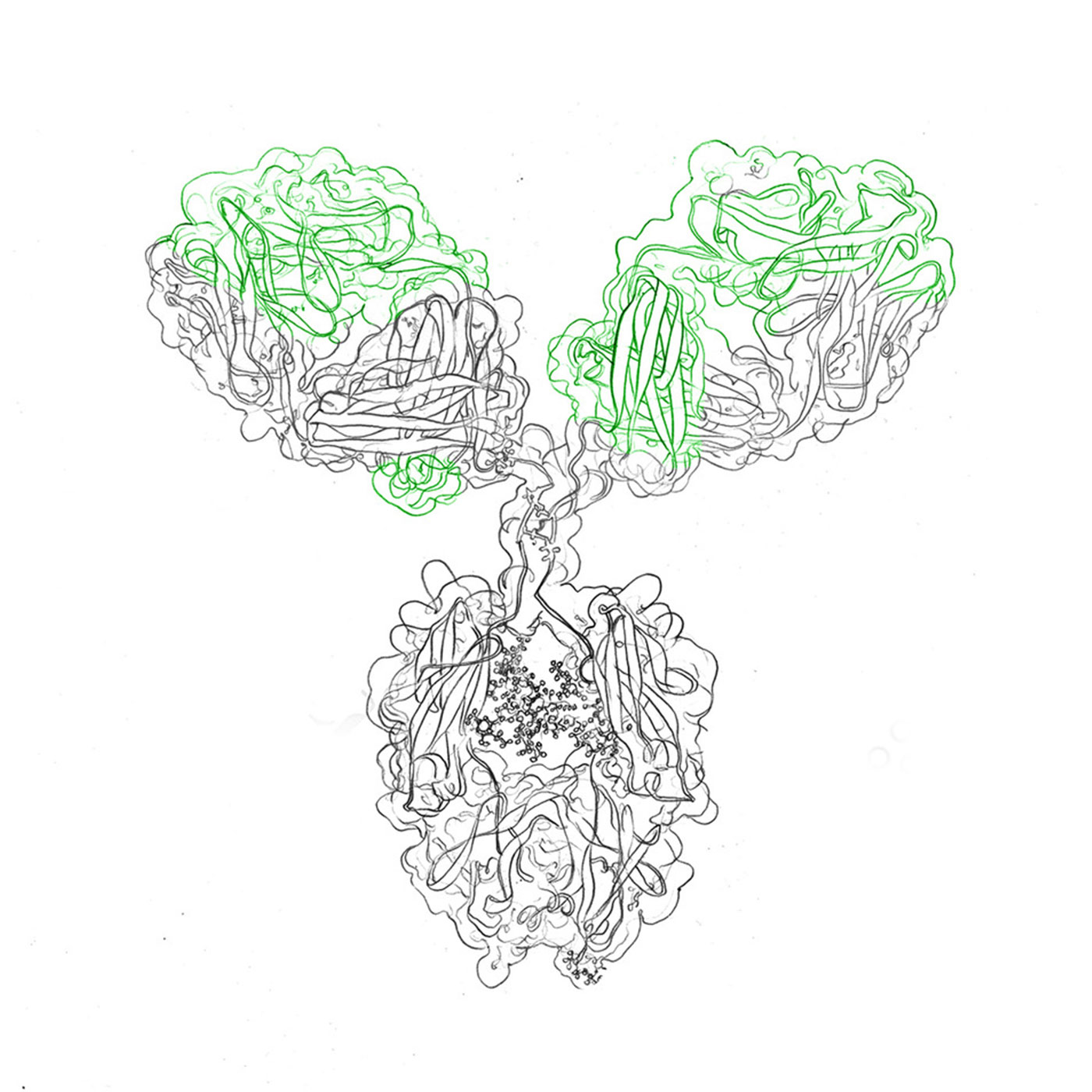Custom recombinant antibody production
We are a leading service provider for custom recombinant antibody production. Get in contact!
Antibody discovery is a dynamic and crucial aspect of modern medical and research endeavors. Nevertheless, these highly specialized proteins, known for their diverse roles for an accurate immune response, are also integral to the search for therapeutic antibodies.
In this article, we will explore multiple aspects of antibody discovery, its significance, and the far-reaching implications of recombinant antibodies and similar products in medicine and research.
Antibody discovery is a process aimed at identifying and generating antibodies with a high degree of specificity for a particular target, often an antigen. This highly precise recognition is achieved through a series of meticulously designed assays, using specialized reagents and techniques to generate antibody types most suitable for a particular application.
This procedure individualizes the selective binding of immunoglobulins (such as IgG) to their intended target: Specificity in antibody discovery is essential for applications in medicine and research, ensuring that the resulting antibodies can effectively interact with and modulate their designated targets. Furthermore, antibody discovery aims at identifying candidates that are not only effective but also safe in use.
Subscribe to our Newsletter
Get all the latest updates, and learn about our advancements in antibody production.
Subscribe now
Antibody discovery is a critical phase in the development of new antibody products, and holds immense importance in fields like precision medicine. Through the careful engineering of high-quality human antibodies in vitro, this process optimizes treatments, minimizing side effects, and enhancing efficiency.
The strict adherence to quality control ensures the reliability and consistency of therapeutic interventions, making it an essential cornerstone in the advancement of healthcare solutions.
The discovery of specific antibodies is a meticulously structured process that spans from the early stages of basic research through candidate screening to the critical step of lead selection. It involves several key phases:
Basic research
The process begins with extensive basic research to understand the target antigen thoroughly. Researchers study its structure, function, and role in various diseases. This foundational knowledge is vital for the subsequent stages.
Immunization and antibody generation
Following comprehensive research, the immunization phase begins. This involves introducing the target antigen into a host organism, typically a mouse or rabbit. The host’s immune system responds by producing antibodies against the antigen. However, non-animal based systems, such as yeast cells or mammalian cell lines, are also eligible, necessitating advanced genomic modifications, often achieved with RNA or DNA transfection with viral vectors or plasmids.
Screening and selection
Once antibodies are generated, high-throughput screening techniques are employed. These methods allow for the rapid assessment of a large number of antibodies in various formats to identify those with the desired receptor specificity and high affinity for the target antigen.
Characterization and optimization
Selected candidate antibodies undergo rigorous characterization, where their binding properties and functional attributes are assessed. This includes determining the epitope specificity and the ability to bind to the antigen with high affinity. Additionally, antibodies may be optimized to enhance their binding and therapeutic properties.
Antibody libraries
In some cases, diverse antibody libraries may be used to expand the pool of potential candidates. These libraries offer a wide range of antibody sequences, allowing for the selection of optimal candidates with specific properties.
Lead selection
After extensive screening, characterization, and optimization, a few antibodies emerge as lead candidates. These are chosen based on their superior binding characteristics, high specificity, low immunogenicity, and therapeutic potential.
Validation and preclinical studies
The lead candidates undergo validation to ensure their safety and efficacy. Preclinical studies, often involving in vitro and in vivo experiments, assess the antibodies’ performance in realistic biological systems.
Clinical trials
Following successful preclinical studies, the most promising antibodies move on to clinical trials. These rigorous tests determine the safety and efficacy of the antibodies in humans.
Antibody discovery is a dynamic and multidisciplinary field that relies on various pivotal techniques to identify, engineer, and optimize antibodies. Here are some of them:
We are a leading service provider for custom recombinant antibody production. Get in contact!

Antibody discovery is a pivotal component of the broader landscape of drug discovery. It involves a meticulously structured process, from identifying potential antibodies to selecting lead candidates. Here’s how it aligns with the stages of drug development:
The initial stages of antibody discovery focus on identifying potential antibodies that exhibit high specificity and affinity for the target antigen. This process is marked by rigorous profiling and the use of advanced antibody engineering techniques, ensuring the development of an antibody variant with the desired antigen-binding properties.
At this stage of drug discovery, the most promising antibodies from the candidate screening phase emerge from an antibody discovery platform as lead candidates. These antibodies are characterized by their ability to precisely bind to the target antigen, offering a foundation for therapeutic development.
The lead candidates move into the pre-clinical phase, where their safety, efficacy, and overall therapeutic potential are assessed. In vivo studies, utilizing animal models, help evaluate the antibodies’ performance within a realistic biological environment.
Successful pre-clinical evaluation paves the way for clinical trials in humans. This phase is marked by rigorous testing, aimed at determining the safety, efficacy, and dosage requirements for the antibodies in real-world scenarios.
Countless fields of application proof how essential antibody development is for life sciences and the biopharma industry. Therefore, both researchers and manufacturers need reliable, high-quality antibodies that are customized to their specific needs.
evitria is at the forefront of antibody discovery, offering invaluable support to researchers and biopharmaceutical manufacturers. The company excels in recombinant antibody production within Chinese hamster ovary (CHO) cells, driven by recombinant DNA technology. This cutting-edge approach results in highly specific and affinity-optimized antibodies for numerous purposes.